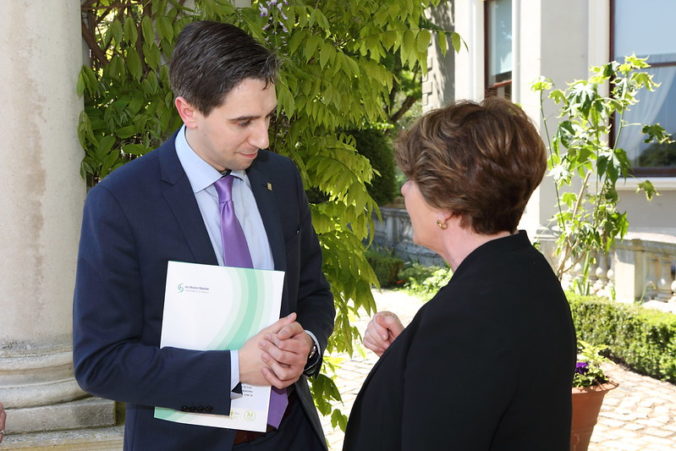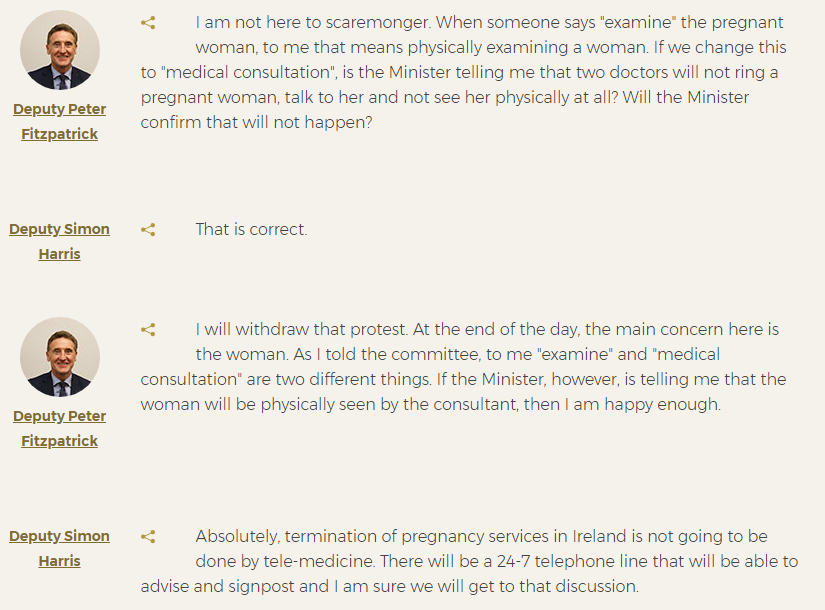During a medical crisis everyone should be focused on saving lives, particularly the Minister for Health. Still, some TDs have tried to use the emergency legislation recently discussed in the Oireachtas to expand access to abortion even further, while Minister Harris has introduced a new and substantial change in the interpretation of the current abortion law, without even consulting the Oireachtas.
Member of Sinn Fein and Solidarity – People Before Profit, have put down a series of amendments to the Emergency Measure in the Public Interest (Covid–19) Bill 2020. They wanted to “allow those seeking abortions to have access to tele-medicine consultations with doctors and for medication and/or prescriptions to be sent through the postal system.” This means that the woman would have no obligation to meet a doctor in person. A phone or a video call would suffice. Also, they wanted nurses to be allowed to provide the abortion pill, and they aimed at removing the 3-day waiting period between the consultation and the procedure, which gives time to reflect on an irreversible decision. All those proposals would increase the risks for a woman who is considering an abortion.
The amendments were rejected as ‘not relevant to the provisions of the Bill’. Nonetheless, Minister Simon Harris, during the debate on the Emergency Bill on Thursday 26th March, announced a “revised model of care” for abortion that will apply for the duration of the Covid-19 public health emergency.
This is precisely what the pro-abortion TDs were asking for. Minister Harris claimed that there is no need to amend the current legislation on abortion as he believes that when the law requests the woman to be examined by two medical practitioners, it “does not prescribe the actions or clinical aspects of the medical practitioner’s examination of the woman. As it is set out in section 12, the phrase ‘having examined’ does not exclude the possibility of the examination being carried out by other means, for example, by telemedicine or video conference.”
This is not only a new interpretation of the 2018 abortion Act but it is exactly the opposite of what Minister Harris said when the abortion legislation was discussed by the Select Committee on Health in November 2018.
At the time, one of the proposed amendments wanted to substitute “having examined the pregnant woman” with the more vague expression “following a medical consultation with the pregnant woman”, which would have included remote consultation, by phone for example.
In supporting the amendment, Deputy Kate O’Connell said “I believe that the word ‘examined’ suggested that there will be a physical exam. In standard checks before 12 weeks of a pregnancy with no complications, I am told this is not necessary.”
Minister Harris, instead, rejected the amendment and clearly explained to deputies McGrath and Fitzpatrick that by “examine” he meant the physical consultation of the woman. “Termination of pregnancy services in Ireland is not going to be done by tele-medicine”.
Now Minister Harris is telling the Oireachtas that remote consultation with a medical practitioner, by phone or video call, is permissible by the current law so that the change in the “model of care for termination of pregnancy services” does not even need to be voted and approved by the Oireachtas. He gave instructions to the HSE and that is sufficient.
This is astonishing as his move goes even against the scope of the abortion referendum, which gave only the Oireachtas and not the Minister for Health the power to legislate on abortion.
Minister Harris has introduced a new interpretation, which explicitly contradicts what he said before, and it is substantial, as it changes completely the provision of abortions in Ireland.
It is an interpretation that increases the risks for the woman, as in an assessment by distance there are more chances of missing an ectopic pregnancy, which is life threatening, or other relevant underlying conditions. It is also more difficult to assess the gestational age of the pregnancy.
What is also worrying is that there is no reason to believe that remote consultation will be discontinued when the public health emergency will end.
If the pro-abortion TDs should be condemned, as they were trying to abuse the emergency legislation to promote their own pro-abortion agenda, what Minister Harris has done is even worse, as he is distorting the current legislation on the pretense that examining a pregnant woman does not require her physical presence, without even passing through the Oireachtas, which is surely against the Constitution.

















